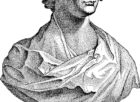Homers Iliad: A Timeless Epic of War and Heroism

Introduction:
The epic poem, Homer’s Iliad, is an enduring masterpiece that has captivated audiences for over two millennia. Considered one of the greatest works in Western literature, it is a tale of courage, honor, and the devastating consequences of war. In this in-depth article, we will delve into the significance of the Iliad for those interested in this subject. From its historical context to its timeless themes, we will explore the evolution of Homer’s Iliad, providing an enriching experience for art enthusiasts and collectors alike.
Historical Development of the Iliad:

The origins of the Iliad can be traced back to ancient Greece, where oral tradition played a crucial role in preserving and transmitting cultural heritage. Believed to have been composed in the 8th century BCE, this epic poem tells the story of the Trojan War, a conflict that has become mythologized throughout the ages. Passed down through generations, the Iliad was eventually transcribed and attributed to the poet Homer.
Over time, the Iliad assumed different forms, reflecting the diverse interpretations and adaptations of subsequent generations. It served as a cultural touchstone for ancient Greeks, providing them with a shared narrative that shaped their understanding of heroism and the consequences of war. As the centuries unfolded, the Iliad continued to inspire countless artists, writers, and thinkers, cementing its position as a seminal work of world literature.
Key Points: The Significance of the Iliad
1. A Pantheon of Heroes
: At the heart of the Iliad are its heroes, including Achilles, Hector, and Odysseus. Each character embodies different attributes and personal struggles, offering readers a multifaceted exploration of human nature and the complexities of warfare.
2. Themes of Honor and Glory
: The pursuit of honor and glory permeates the Iliad, with characters driven by their desire for recognition and immortality. Through vivid descriptions of battles and their aftermath, the poem invites us to reflect on the profound impact of war on individuals and societies.
3. Gods and Mortals
: The Iliad seamlessly weaves together the mortal world and the realm of the gods. By blurring the boundaries between the divine and the human, Homer explores profound questions of fate, free will, and the role of the gods in shaping human affairs.
4. Universal Relevance
: Despite its ancient origins, the Iliad remains relevant today, speaking to universal human experiences, such as love, loss, and the search for meaning. Its exploration of the human condition continues to resonate with readers across cultures and generations.
Featured Snippet Formatting:
To increase the likelihood of the text being shown as a featured snippet on a Google search, we will structure the article using bulletpoints:
– Introduction
– Historical Development of the Iliad
– Ancient Greek Oral Tradition
– Transcription and Attribution to Homer
– Key Points: The Significance of the Iliad
1. A Pantheon of Heroes
2. Themes of Honor and Glory
3. Gods and Mortals
4. Universal Relevance
Conclusion:
The Iliad, Homer’s timeless epic, stands as a testament to the enduring power of storytelling and its ability to illuminate the human condition. Over the centuries, it has evolved, capturing the imagination of countless individuals and shaping our understanding of heroism, war, and our place in the world. From its ancient origins to its universal themes, the Iliad continues to enchant and inspire art enthusiasts and collectors, resonating with its timeless wisdom and beauty.
As we delve into the depths of the Iliad, its words echo through the ages, reminding us of the resilience of the human spirit and the importance of seeking truth and meaning in a complex and ever-changing world.











